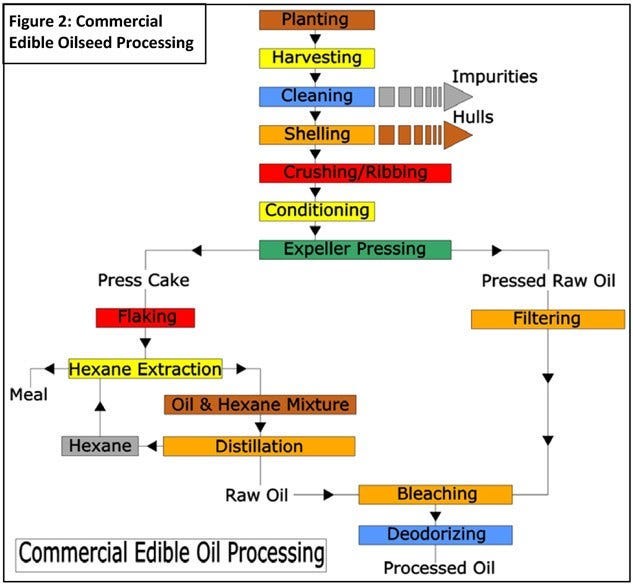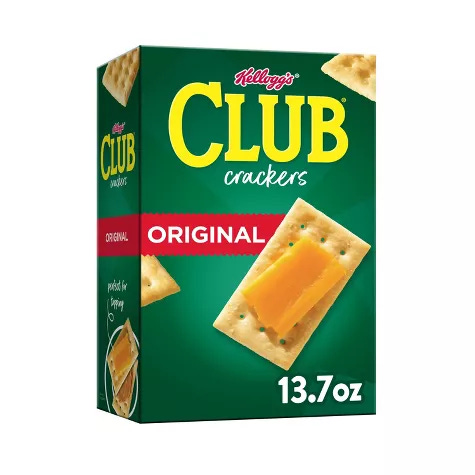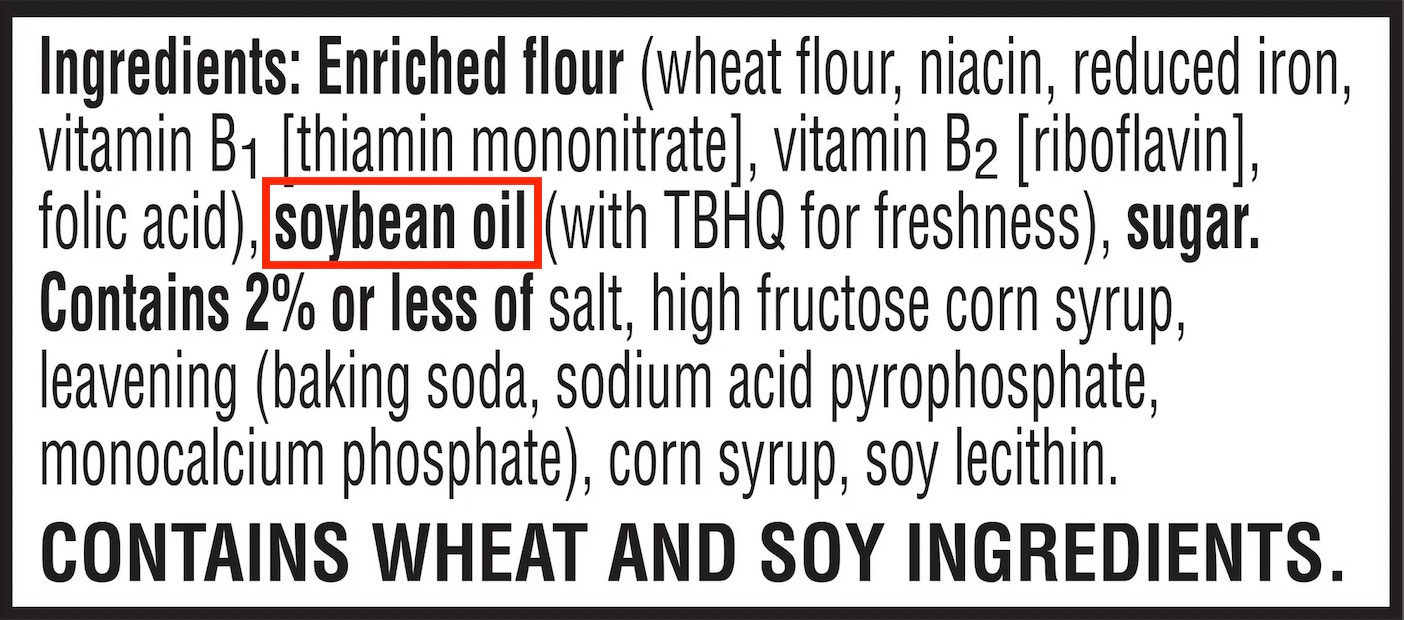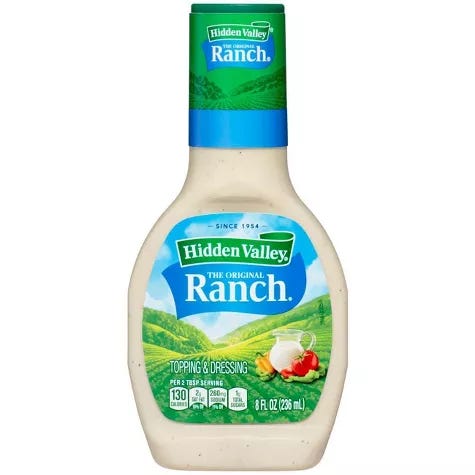Are seed oils bad for you?
My take on the heated nutrition debate
There’s maybe only one thing we can all agree on in the world of nutrition, and that’s about artificial trans fats. No one (at least nobody I know) disagrees that artificial trans fats are bad for human health, which is why they were banned by the FDA in 2018. Unfortunately, that’s not the case for most other nutrition topics, and right now seed oils are at the top of the nutrition debate list. It seems like you can find just as many posts claiming seed oils will kill you as those saying they’re A-OK.
So, I hope today’s newsletter will give you a nuanced view on the seed oils debate. For paying subscribers (thanks for your financial support), I’m also sharing my “Walk and Talk Takes”, which are some additional “off the top of my head” thoughts I might share with you if we were out for a walk together.
Ok, let’s dig in.
What are seed oils?
As their name implies, seed oils are derived from the seed of a plant instead of the fruit. They include oils like canola, corn, cottonseed, grapeseed, rice bran, safflower, soy, and sunflower.
For example, grapeseed oil is derived from the seeds of grapes. To extract the oil from the seed takes a multi-step process (similar to the process depicted in the figure below). This makes the oil inherently more processed, which likely removes some of its natural nutritional value (outside of being a good fat source). (1) This is perhaps illustrated more clearly when compared to something like extra virgin olive oil (EVOO) because EVOO is just one step removed from the whole food. To make EVOO, the olive is simply pressed to extract the oil from the fruit, making it a less-processed oil.

Where are seed oils found in foods?
As a nutrition practitioner, I’ve never heard a client describe drizzling safflower oil on vegetables before roasting, or sautéing onions in cottonseed oil. More likely, you’ll find seed oils on the ingredient lists of ultra-processed food like the Club crackers below made with soybean oil (again, not oil from the soybean but from the seed of a soy plant).
You can also find them in foods like bars, breads, sugary breakfast cereals, chips, cookies, and others. In other words, seed oils are generally in foods that define the ultra-processed standard American diet.
Seeds oils aren’t just in ultra-processed foods, however. They can sneak onto whole foods via bottled salad dressings and marinades. While I wouldn’t encourage someone to eat a diet dominant in ultra-processed foods, I also want people to eat whole foods in a way they can enjoy. So, if someone would eat more vegetables because they can dip them in Ranch dressing, then by all means go for it.
And while I wouldn’t characterize highly processed seed oils as being equivalent in healthfulness to EVOO (2), they likely aren’t harmful enough to negate the benefits of eating more whole foods. Although, the extent that EVOO benefits cardiovascular health may be somewhat less clear than even I hoped. (3-4) Nutrition science just can’t seem to agree on anything, right?
Concern for seed oils
Because seed oils are often found in ultra-processed foods, and we know that eating a diet high in ultra-processed foods can increase risk for chronic diseases, all cause mortality (5), and cardiovascular disease risk factors (6), it would make sense that consuming seed oils (via an ultra-processed diet) may increase risk for chronic diseases. However, some folks who declare seed oils are 100% safe argue there isn’t a lot of human research to support that concern.
While ultra-processed foods contain these seed oils, they also contain other less-than-healthy ingredients like refined carbohydrates, added sugars, preservatives, artificial colors, etc. So, keep in mind other variables (in this case, ingredients) that influence the “healthfulness” of a food and try not to hyperfocus on any single ingredient.
Other considerations
Oxidative stability
Another factor that could impact the healthfulness of an oil is its oxidative stability. (7) When an oil is oxidized, it’s essentially damaged, which may decrease the healthfulness and safety of the oil. (7-8) Oxidation is the chemical reaction that causes the browning of apples or avocados when the fruit’s flesh interacts with the air.
The amount saturation of a fat or oil influences its oxidative stability. For example, both butter and coconut oil are highly saturated fats, so they are less prone to oxidation. On the flip side, grapeseed oil is highly unsaturated (“polyunsaturated”), so it is more prone to oxidation.
Also impacting an oil’s oxidative stability is its antioxidant content (like vitamin E). (9) Antioxidants in oils can protect the oil against oxidation. Thus, the name “anti” oxidant. This is also the reason lemon juice helps prevent apples from browning; it’s full of vitamin C (an antioxidant).
One reason an oil’s oxidative stability matters is that the more stable the oil, the less likely it is to be damaged (oxidized), which increases its shelf life (important to food manufacturers and grocers). (9) It’s also important because consuming damaged oils may, theoretically, cause harm to human health. (7)
This is, I believe, one of the main sticking points between the pro-seed oil folks and the anti-seed oil folks. The PRO seed oilers don’t think there’s enough evidence to confidently warn people against eating them. The ANTI seed oilers seem confident that eating these highly processed and potentially damaged oils will definitely harm human health. My take is: the evidence on oils isn’t as clear as the evidence about the foods they’re found in (as I’ve already described).
Without going even further down the rabbit hole I’m already in, just remember that nutrition science is messy, imperfect, and poorly funded (at least compared to pharmaceutical research). Sometimes the claim that “there isn’t enough evidence” is because there isn’t enough research on the topic at all (it doesn’t exist), not necessarily that there’s a ton of research available that is all pointing toward the safety (or harm) of seed oils.
Thermal (heat) treatment of oils
Finally, the process of extracting these oils strips away many nutrients like vitamins (e.g. vitamin E and beta carotene), phenols, other carotenoids and vitamins. (10) So, even if there isn’t enough evidence to show clear harm to human health, we know that the oils don’t contain as many nutrients as less processed oils contain. Although, there is some evidence to suggest that processing of some oils can increase their antioxidant content. (8) Interesting, huh?
Smoke point when cooking
The smoke point (temperature at which the oil begins to smoke) can create harmful compounds in the oil, so it’s important to keep oils below that temperature when cooking. While seed oils are made to have high smoke points (i.e. for frying), some less-refined oils like EVOO and avocado oils actually have naturally higher smoke points and stability at moderate to high temperatures because of their antioxidant content. Nature is amazing.
Zooming Out
Trying to decipher nutrition information (especially if you consume it mostly via social media) is a great way to find yourself in the weeds… like I did with this article. When we get fixated on a single ingredient or nutrient (e.g. seed oils, copper, omega 3 fats, creatine, or a certain type of sugar), it can distract you from seeing your overall health and life. If you’re worried about whether a quarter teaspoon of a a seed oil in a food will harm your overall health or cause inflammation (an article for another day), ask yourself a few questions:
What are my health goals or what symptoms/issues am I hoping to resolve?
Will changing my diet help me reach these my health goals?
What does my diet look like over a month or throughout a year?
If you’re eating primarily whole foods and some occasional ultra-processed or fast foods, then eating something that contains seed oils is no big deal. If you’re eating a lot of meals away from home or out of packages or windows (drive-thru, that is), then maybe it’s time to strategize how you can include more whole foods or even commit to eating a few more meals at home. By eating at home, you’re more likely to improve the quality of your diet (11) and decrease your intake of foods that, yes, might contain some seed oils and are likely lower in nutritional quality, generally.
Maintaining a healthy perspective on any nutrition debate will also help quiet the distracting noise of social media. Zoom out so you can better focus on the small, sustainable steps you can take toward your health and wellness.
What oils do I cook with?
The fats and oils I most often cook with are extra virgin olive oil (for medium and medium-high heat cooking, marinades and dressings), butter (medium heat), avocado oil (high heat). I use coconut oil for some cooking and baking where I would enjoy the flavor of the oil. I use unrefined coconut oil, which has a stronger coconut flavor than refined. Colorado State University has a good resource on smoke points and temperatures for using various fats and oils.
For paid subscribers:
Walk and Talk Takes: A few things I’d probably tell you on the seed oils topic if we were just casually chatting on a walk or out socially, and I wasn’t able to provide references. My “off the cuff” thoughts.
References
Riaz T, Iqbal MW, Mahmood S, Yasmin I, Leghari AA, Rehman A, Mushtaq A, Ali K, Azam M, Bilal M. Cottonseed oil: A review of extraction techniques, physicochemical, functional, and nutritional properties. Critical Reviews in Food Science and Nutrition. 2023 Apr 3;63(9):1219-37.
Xia M, Zhong Y, Peng Y, Qian C. Olive oil consumption and risk of cardiovascular disease and all-cause mortality: A meta-analysis of prospective cohort studies. Front Nutr. 2022 Oct 18;9:1041203. doi: 10.3389/fnut.2022.1041203. PMID: 36330142; PMCID: PMC9623257.
Morvaridzadeh M, Cohen AA, Heshmati J, Alami M, Berrougui H, Zoubdane N, Pizarro AB, Abdelouahed K. Effect of extra virgin olive oil on anthropometric indices, inflammatory and cardiometabolic markers: A systematic review and meta-analysis of randomized clinical trials. The Journal of Nutrition. 2023 Nov 15.
Dehghani F, Morvaridzadeh M, Pizarro AB, Rouzitalab T, Khorshidi M, Izadi A, Shidfar F, Omidi A, Heshmati J. Effect of extra virgin olive oil consumption on glycemic control: A systematic review and meta-analysis. Nutrition, Metabolism and Cardiovascular Diseases. 2021 Jun 30;31(7):1953-61.
Suksatan W, Moradi S, Naeini F, Bagheri R, Mohammadi H, Talebi S, Mehrabani S, Hojjati Kermani MA, Suzuki K. Ultra-processed food consumption and adult mortality risk: a systematic review and dose–response meta-analysis of 207,291 participants. Nutrients. 2021 Dec 30;14(1):174.
Wang M, Du X, Huang W, Xu Y. Ultra-processed foods consumption increases the risk of hypertension in adults: a systematic review and meta-analysis. American Journal of Hypertension. 2022 Oct 1;35(10):892-901.
Vieira SA, Zhang G, Decker EA. Biological implications of lipid oxidation products. Journal of the American Oil Chemists' Society. 2017 Mar;94:339-51.
Cai Z, Li K, Lee WJ, Reaney MT, Zhang N, Wang Y. Recent progress in the thermal treatment of oilseeds and oil oxidative stability: A review. Fundamental Research. 2021 Nov 1;1(6):767-84.
Maszewska M, Florowska A, Dłużewska E, Wroniak M, Marciniak-Lukasiak K, Żbikowska A. Oxidative Stability of Selected Edible Oils. Molecules. 2018 Jul 17;23(7):1746. doi: 10.3390/molecules23071746. PMID: 30018226; PMCID: PMC6100155.
Wu Y, Zhou R, Wang Z, Wang B, Yang Y, Ju X, He R. The effect of refining process on the physicochemical properties and micronutrients of rapeseed oils. PLoS one. 2019 Mar 8;14(3):e0212879.
Wolfson JA, Leung CW, Richardson CR. More frequent cooking at home is associated with higher Healthy Eating Index-2015 score. Public Health Nutrition. 2020 Sep;23(13):2384-94.






